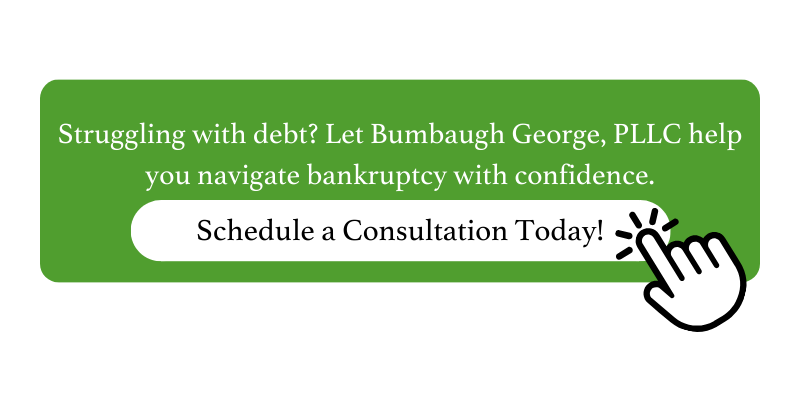When you’re drowning in debt, it can feel like you’re treading water in a stormy sea with no life raft in sight. But there’s hope. Two common lifelines for those struggling with overwhelming debt are settling debt vs bankruptcy. Each option offers a potential path to financial recovery, but they work in very different ways.
Let’s explore the key differences between debt settlement and bankruptcy, exploring the pros and cons of each approach. We’ll examine how they impact your credit score, what debts can be addressed, and who might be the best candidate for each option. By the end, you’ll have a clearer picture of which path might be right for your situation.
Understanding Debt Settlement
Debt settlement is like negotiating a truce with your creditors. It’s a process where you or a debt settlement company tries to convince your creditors to accept less than what you owe as payment in full.
Here’s how it typically works:
- You stop making payments to your creditors.
- Instead, you set aside money in a separate savings account.
- Once you’ve saved a substantial amount, you or your representative approaches creditors with a lump-sum offer.
- If the creditor accepts, you pay the agreed amount, and the rest of the debt is forgiven.
It sounds simple, but there’s more to consider. Let’s break down the pros and cons:
Pros of Debt Settlement
- Potential for significant debt reduction.
- Faster than paying off full balances.
- Avoid bankruptcy.
- Can be done without professional help.
Cons of Debt Settlement
- Severe negative impact on credit score.
- No guarantee creditors will settle.
- Debt may increase due to fees and interest during the non-payment period.
- Potential tax implications on forgiven debt.
- Risk of lawsuits from creditors.
One crucial point to remember: debt settlement companies often charge hefty fees, sometimes up to 25% of your enrolled debt. Always research thoroughly before engaging any debt relief service.
The Bankruptcy Option
Bankruptcy is a legal process that can wipe out many types of unsecured debts or create a court-supervised repayment plan. There are two main types of personal bankruptcy: Chapter 7 and Chapter 13.
Chapter 7 Bankruptcy
Chapter 7, often called “liquidation bankruptcy,” involves selling off non-exempt assets to pay creditors. Most unsecured debts are then discharged, giving you a fresh start. Filing for Chapter 7 bankruptcy can have a negative impact on your credit score.
Chapter 13 Bankruptcy
Chapter 13, or “reorganization bankruptcy,” allows you to keep your assets but requires a 3-5 year repayment plan to pay off some or all of your debts. When filing for Chapter 13 bankruptcy, it is important to understand the long-term implications it may have on your credit report.
Let’s look at the pros and cons of bankruptcy:
Pros of Bankruptcy
- Immediate relief from creditor harassment.
- Many debts can be discharged completely.
- Can stop foreclosure and repossession.
- Faster resolution than debt settlement.
Cons of Bankruptcy
- Severe, long-lasting impact on credit (7-10 years on credit report).
- Loss of assets in Chapter 7.
- Not all debts can be discharged (e.g., student loans, recent taxes).
- Public records can affect job prospects.
- Limited ability to file again in the future.
Bankruptcy provides considerable relief for anybody overwhelmed with unsustainable levels of debt. However, it’s not a decision to be taken lightly. Seeking guidance and support from financial professionals, such as a credit counselor, can provide valuable insights into navigating the complexities of debt and making informed decisions.
Comparing the Impact on Your Credit
Both settling debt and bankruptcy will ding your credit score, but to different degrees. A lower credit score can impact your ability to secure loans with favorable mortgage rates. Let’s break it down:
| Aspect | Debt Settlement | Bankruptcy |
|---|---|---|
| Credit Score Impact | Significant drop (50-150 points) | Severe drop (130-240 points) |
| Time on Credit Report | 7 years | 7 years (Chapter 13) or 10 years (Chapter 7) |
| Recovery Time | 2-4 years with responsible credit use | 5-10 years, depending on type |
Remember, while these numbers look grim, they’re not a life sentence. With time and responsible financial habits, like maintaining a healthy balance in your checking account and utilizing savings calculators, you can rebuild your credit.
Who Should Consider Debt Settlement?
Debt settlement might be a good fit if:
- You have a lump sum available to offer creditors, such as funds from a money market account.
- Your debts are primarily unsecured (credit cards, medical bills).
- You can’t qualify for bankruptcy.
- You want to avoid the public record of bankruptcy.
However, be prepared for a lengthy process. Debt settlement can take 2-4 years and requires discipline to save up settlement funds while creditors continue collection efforts, which could potentially lead to wage garnishment if left unresolved.
Who Should Consider Bankruptcy?
Bankruptcy might be the better option if:
- You’re facing legal action from creditors.
- You have little to no income to pay debts.
- Your debts far exceed your ability to repay, making it difficult to manage even with a loan calculator.
- You need immediate relief from creditor harassment.
Because you pay back at least some of what you owe, it’s considered a bit more respectable when you apply for credit in the future. Filing for bankruptcy can also impact your ability to obtain personal loans in the future. It’s essential to consult with financial experts and consider all available options, including debt consolidation or exploring personal loan rates, to make informed decisions that align with your circumstances.
The Role of Credit Counseling
Before deciding between settling debt vs bankruptcy, consider credit counseling. Many non-profit organizations offer free or low-cost counseling to help you understand your options, including guidance on how to manage student loans.
A credit counselor can:
- Review your financial situation.
- Help create a budget.
- Negotiate with creditors on your behalf.
- Recommend debt-relief options, potentially including refinancing options or exploring refinance rates for existing loans.
The U.S. Department of Justice maintains a list of approved credit counseling agencies. Consulting with a credit counseling agency can provide valuable support and guidance in navigating financial challenges and making informed decisions.
Legal Considerations
Both debt settlement and bankruptcy have legal implications. With debt settlement, you risk being sued by creditors during the process, and this could potentially affect your income tax obligations.
Bankruptcy offers legal protection through an “automatic stay,” which halts most collection activities. Filing for bankruptcy can provide legal protection and an opportunity to reorganize finances or seek debt relief under court supervision. It’s crucial to understand the legal ramifications of each option and seek guidance from legal professionals specializing in bankruptcy law.
However, bankruptcy isn’t guaranteed. You must qualify, and some debts can’t be discharged. The Department of Justice released new guidance for bankruptcy courts in late 2022 to help judges interpret the undue hardship standard more uniformly, particularly for student loan debt. Consulting with a bankruptcy attorney is essential to assess eligibility, understand the process, and determine if bankruptcy aligns with your specific circumstances.
Tax Implications
Here’s a crucial point many overlook: forgiven debt is often considered taxable income. If you settle a $10,000 debt for $6,000, you may owe taxes on the $4,000 difference.
Bankruptcy, however, generally doesn’t create a tax liability on discharged debts. Understanding the potential tax consequences of debt settlement or bankruptcy is crucial for making informed financial decisions. Consult with a qualified tax advisor or financial planner to evaluate the specific implications based on your situation.
Always consult with a tax professional to understand the potential tax consequences of your debt relief choice.
FAQs about Settling Debt vs Bankruptcy
Is it Worth it to Settle Debt?
Settling debt can be worth it if you have a lump sum available and want to avoid bankruptcy. However, it will negatively impact your credit score and may have tax implications.
Consider your overall financial situation and long-term goals before deciding. Exploring options like debt consolidation or understanding current CD rates for potential savings strategies can provide additional insights.
How Can I Settle My Debt Without Bankruptcy?
You can try negotiating directly with creditors, use a debt settlement company, or work with a credit counseling agency to create a debt management plan. Each option has pros and cons, so research thoroughly and consider seeking professional advice.
Remember that seeking help from reputable credit counseling agencies or financial advisors can provide valuable support and guidance in navigating debt settlement options effectively.
Is Paying off Collections Better Than Bankruptcy?
Generally, paying off collections is better for your credit score than bankruptcy. However, if your debts are overwhelming and you have no realistic way to pay them off, bankruptcy might provide more comprehensive relief. Consult with a financial advisor or credit counselor to evaluate your specific situation.
They can provide personalized guidance based on your circumstances and explore alternatives such as debt management plans or negotiating with creditors. Remember that seeking professional advice is crucial for making informed decisions regarding debt management.
Should I Settle or Pay Debt in Full?
If you can afford to pay your debt in full, that’s usually the best option for your credit score. However, if you’re struggling, settling for less than you owe might be a viable alternative to bankruptcy. Consider factors like your total debt, income, and long-term financial goals when making this decision.
It’s important to evaluate your budget, explore potential savings or income-generating opportunities, and consider the long-term impact on your creditworthiness.
Conclusion
Choosing between settling debt vs bankruptcy isn’t easy. Both options offer potential relief from overwhelming debt, but they come with significant consequences. Debt settlement might help you avoid the stigma of bankruptcy, but it’s a lengthy process with no guarantees. Bankruptcy offers more comprehensive debt relief and legal protection, but it’s a serious step with long-lasting impacts.
Remember, there’s no one-size-fits-all solution. Your best path depends on your specific financial situation, the types of debt you have, and your long-term goals. Don’t be afraid to seek professional help – a credit counselor, financial advisor, or bankruptcy attorney can provide valuable insights tailored to your situation. They can guide you on various aspects, including understanding current mortgage lenders, navigating loan refinance options, or exploring suitable life insurance plans, to make informed financial decisions.
Whatever you choose, view it as a fresh start. Use this opportunity to develop better financial habits, rebuild your credit, and work towards a more secure financial future. The journey might be tough, but financial freedom is worth the effort. Utilizing tools like student loan calculators, CD calculators, or savings account comparisons can aid in effective financial planning and decision-making.








